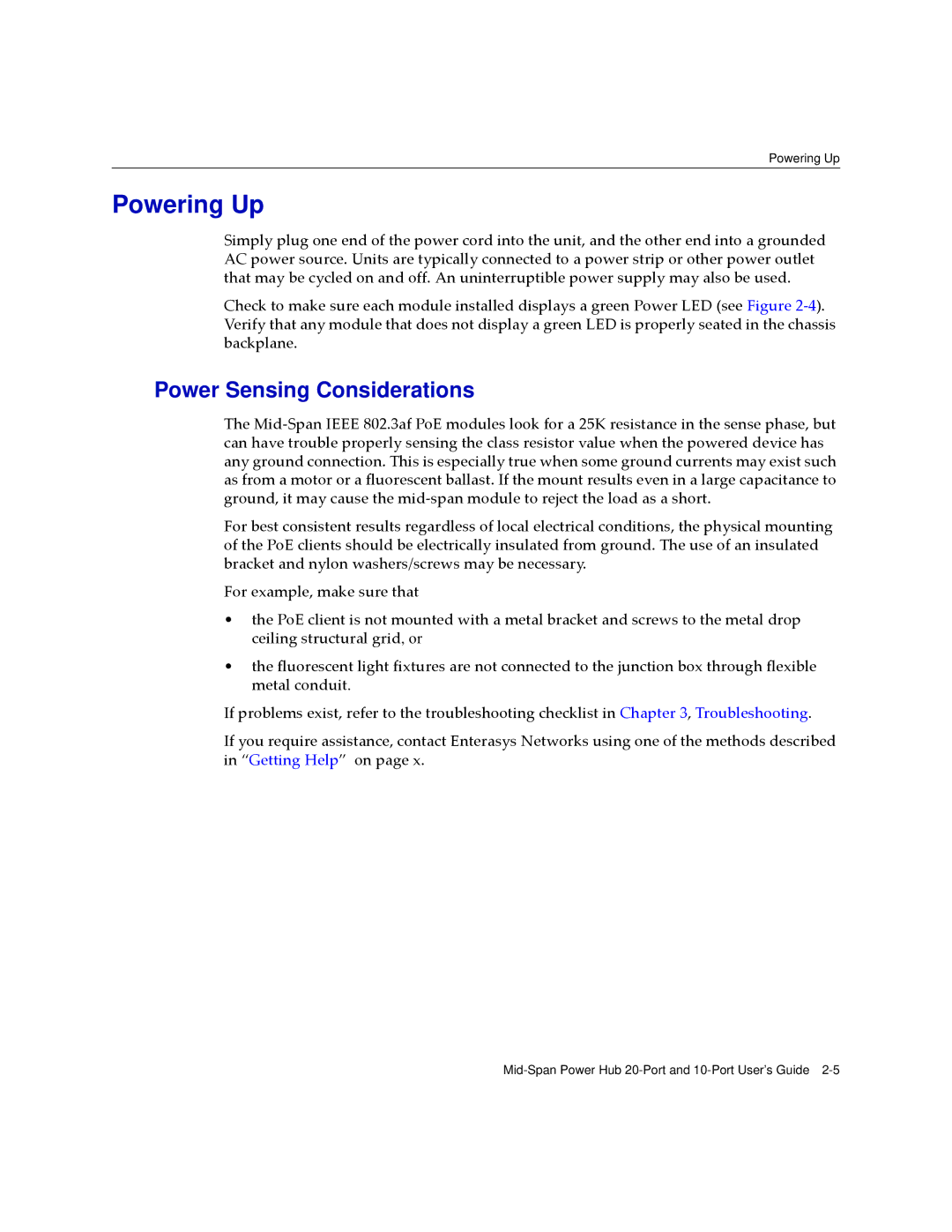BL-89420ENT, BL-89520ENT, BL-89620ENT, BL-89720ENT, BL-89710ENT specifications
Enterasys Networks, a provider of secure networking solutions, offers a range of high-performance networking devices designed to meet the needs of modern data-intensive environments. Among their offerings are the BL-89720ENT, BL-89520ENT, BL-89620ENT, BL-89710ENT, and BL-89420ENT models, which are distinguished by their high scalability, advanced features, and robust performance.The BL-89720ENT is a cutting-edge switch tailored for enterprise networks that require high throughput and reliability. With its 32 ports, it supports both copper and fiber connections, making it versatile for various deployment scenarios. Key features include layer 2 and layer 3 switching capabilities, advanced Quality of Service (QoS) for traffic prioritization, and comprehensive security features to safeguard sensitive data transmissions.
The BL-89520ENT is another notable model designed for medium to large enterprise networks. This switch provides excellent performance with high-density 10 Gigabit Ethernet ports, ensuring seamless connectivity for bandwidth-hungry applications. It is equipped with intelligent management tools that automate configuration and monitoring, facilitating easy scalability and efficient network management.
The BL-89620ENT is distinguished by its support for Power over Ethernet (PoE), enabling it to power IP phones, cameras, and other devices directly over the network connection. This switch features advanced security protocols and VLAN support, allowing organizations to create segmented networks for improved security and performance.
The BL-89710ENT serves as a reliable solution for organizations seeking cost-effective yet powerful networking options. It offers essential features for layer 2 switching, with options for both PoE and non-PoE configurations, making it adaptable to various environments. Its user-friendly interface simplifies setup and management, ensuring that IT teams can maintain network efficiency.
Lastly, the BL-89420ENT is designed for deployment in environments that require rugged and durable networking equipment. Built for high availability, this model includes features such as fanless operation and wide temperature tolerance, making it ideal for challenging conditions. It supports a range of networking protocols and is well-suited for industrial applications.
In summary, Enterasys Networks’ range of switches, including the BL-89720ENT, BL-89520ENT, BL-89620ENT, BL-89710ENT, and BL-89420ENT, is characterized by high performance, versatility, and advanced management features. These devices are engineered to support the evolving demands of modern enterprises, ensuring connectivity, security, and ease of management in increasingly complex networking environments.
